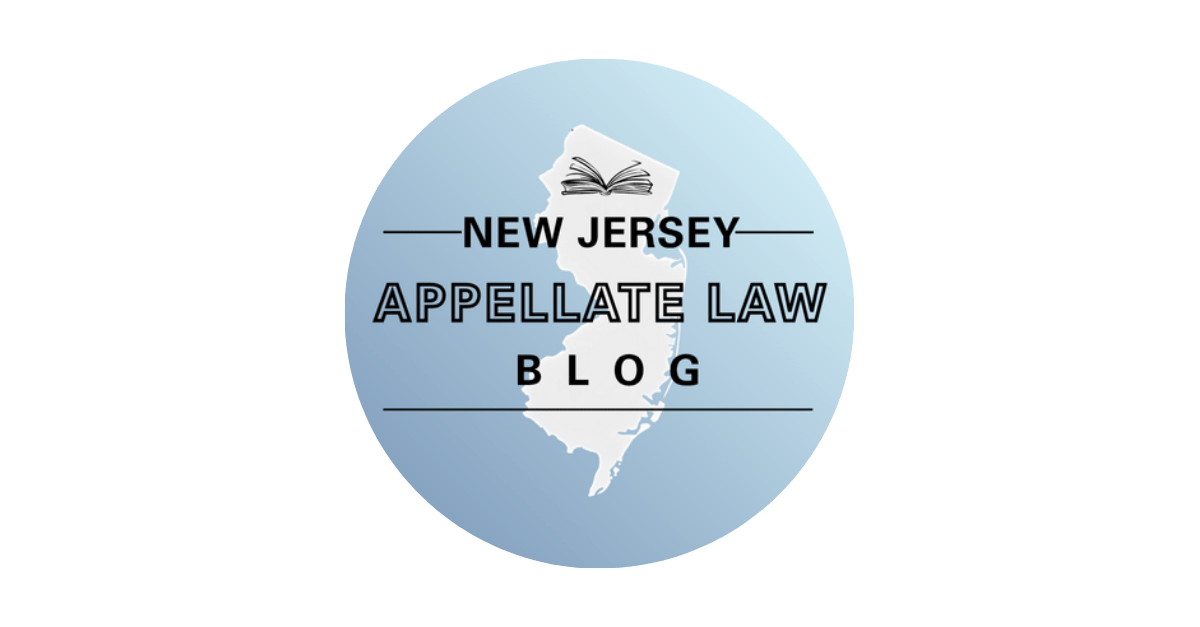On this date in 2021, the Supreme Court decided In re Robertelli, 248 N.J. 293 (2021). As discussed here, the case had been before the Court once before, on the question of whether the Office of Attorney Ethics (“OAE”) could pursue a matter that the District Ethics Committee had declined to docket. The Court held that the OAE could pursue the case. The 2021 decision, authored by Justice Albin for a unanimous Court, was an appeal from the OAE’s conclusion that Robertelli had violated Rule of Professional Conduct 4.2, which prohibits a lawyer from communicating with another lawyer’s client about the subject of the representation without the other lawyer’s consent.
Here is how Justice Albin summarized the background events, which occurred in 2007 and 2008 (a more detailed factual recitation appeared later in the opinion, but this summary suffices for present purposes). “Respondent John Robertelli represented a public entity and public employee in a personal-injury action brought by Dennis Hernandez. During the course of internet research, Robertelli’s paralegal forwarded a flattering message to Hernandez, and Hernandez unwittingly granted her ‘friend’ status, giving her access to his personal private information.
As a result, the Office of Attorney Ethics (OAE) brought disciplinary charges against attorney Robertelli for a violation of RPC 4.2 and other RPCs. The matter proceeded before a Special Master, who heard three days of testimony in 2018. Robertelli testified that he had little knowledge or understanding of Facebook at the time and never knowingly authorized his paralegal to communicate with Hernandez to secure information that was not publicly available. The Special Master found that the conflicting testimony between Robertelli and his paralegal about the exact nature of their conversations a decade earlier was the product of the natural dimming of memories due to the passage of time. The Special Master, in particular, found that Robertelli in 2008 did not have an understanding of Facebook’s privacy settings or Facebook-speak, such as ‘friending.’ The Special Master held that the OAE did not prove by clear and convincing evidence that Robertelli violated the RPCs and dismissed the charges.”
The Disciplinary Review Board was divided. Six members voted to sanction Robertelli, with four of those members advocating for an admonition and two for a censure. Three other members voted to dismiss the charges. The Supreme Court then took up the case.
Justice Albin began by tracing the history of Facebook. “Facebook was launched in 2004 to a limited scope of users — college and university students and later high school students. Not until the latter part of 2006 was Facebook membership opened to the general public.” And by 2008, when the conduct at issue occurred, “only fifteen percent of lawyers who responded to the American Bar Association’s Legal Technology Survey reported personally maintaining a presence on social media.”
Thus, the testimony was that Robertelli and his associate, and even the attorney for Hernandez, who had brought the matter to the OAE, had a “minim[um]” understanding of Facebook. Robertelli and his associate did not know what “friending” was or what privacy settings were, and they thought that Facebook was no different than any other location on the internet for generally available information. Robertelli’s paralegal, in contrast, was younger, knew about Facebook, and had her own Facebook account.
Justice Albin went through the evidence in great detail. The upshot was that the Special Master, who saw the witnesses, was entitled to “due though n not controlling deference” in his credibility findings. The Court upheld his ruling that Robertelli had not violated RPC 4.2. Robertelli’s lack of knowledge about Facebook was excusable in 2008. “No one disputed at the Special Master hearing that Facebook was a novelty to the bar in 2008. As of 2008, no jurisdiction had issued a reported ethics opinion giving guidance on the issue before this Court — whether sending a ‘friend’ request to a represented client without the consent of the client’s attorney constitutes a communication on the subject of the representation in violation of RPC 4.2 The absence of ethical guidance at that time evidently reflected that Facebook had yet to become the familiar social media platform that it is today in the legal community. Many lawyers in 2008, like Robertelli, had a ‘[m]inimum’ understanding of Facebook.”
Robertelli was not guilty for what happened in 2008. But Justice Albin made clear that in 2021, the landscape was very different. “Attorneys should know that they may not communicate with a represented party about the subject of the representation — through social media or in any other manner — either directly or indirectly without the consent of the party’s lawyer. Today, social media is ubiquitous, a common form of communication among members of the public. Attorneys must acquaint themselves with the nature of social media to guide themselves and their non-lawyer staff and agents in the permissible uses of online research. At this point, attorneys cannot take refuge in the defense of ignorance.”
This guidance, of course, remains vital today. Moreover, one can foresee a similar progression of events as regards artificial intelligence and related technologies whose use is beginning to blossom today. All must be aware of those developments.

